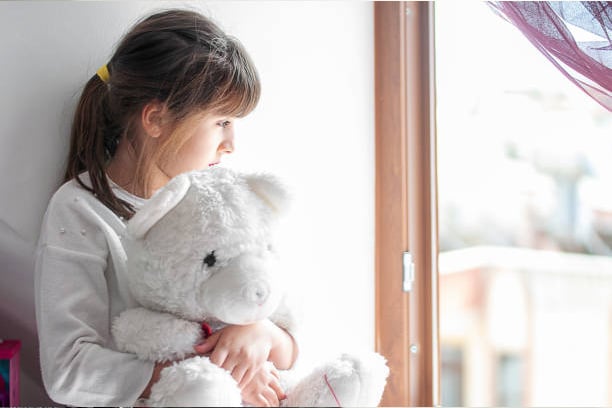
What to do When Experiencing School Refusal
School refusal describes a child’s consistent wish to avoid school, ranging from occasional days at home to a total rejection of school culture. Children’s charity, Action for Children state that “School
Anxiety can be a normal reaction to change or stress – until a child’s anxiety interferes with school, friends or home life. Problems rooted in deep-seated anxiety are among the most common mental health issues of childhood and adolescence.
Anxiety can be triggered by many different things, and therefore present in different ways and situations. Anxiety can be issue-specific (such as a phobia), triggered by being away from a parent or carer (separation anxiety), a fear of being in public and engaging with friends and peers (social anxiety), or concern about going to school (school anxiety or school refusal).
Some children also experience what is known as Generalised anxiety, where they worry excessively about a wide range of things – such as school, their health, the well-being of family members, or the future. Someone experiencing generalised anxiety may show physical symptoms related to the condition, such as headaches, stomach pain, muscle tension or tiredness.
Children and adolescents dealing with severe anxiety can also experience panic attacks. These occur suddenly and for no apparent reason, causing intense physical symptoms such as a pounding heart, shortness of breath or dizziness. There can also be agitation, restlessness and withdrawal.


Severe anxiety can also be a key element in Obsessive Compulsive Disorder (OCD). This sees a young person excessively preoccupied by certain thoughts (obsessions) and/or repetitive actions (compulsions).
Other signs of an anxiety disorder can include difficulties with concentrating or sleeping, frequent crying or tantrums, plus negative thoughts. A child may also reveal their anxiety by setting themselves hard-to-achieve expectations for schoolwork, homework or sports performance.
Because anxiety can also be a ‘normal’ part of life, however, it can be difficult to obtain a diagnosis even when it manifests in a form that constitutes special educational needs (SEN). Anxiety behaviours – particularly ‘bad behaviour’ – can also be confused with other conditions, such as Oppositional Defiance Disorder.
Being immersed in worries can mean a child is distracted in class, which can then be mistaken for a condition like ADHD. Learning problems caused by anxiety-induced issues can also lead to a child being mistaken as having some kind of learning disability.
Matters are made more complicated by the fact that children who are anxious don’t always know that their feelings are due to anxiety. They just know that they don’t like how they feel – but don’t know how to make the feelings stop. Anxiety’s varied expressions therefore mean a careful assessment of needs should be made.
"I was looking for an understanding tutor for my son who is autistic and anxious especially around school. My son loves Kirsten, she is open, encouraging, has loads of new ideas and ways to learn so it doesn’t even feel like school! My son is managing his anxiety much better now - he’s asked if Kirsten can come every week until he leaves school (another 8 years!). I highly recommend SENsational Tutors and Kirsten."
Miranda, C’s mother, London
How you help a child suffering with severe anxiety will depend on how their problems manifest.
If a child is struggling to complete schoolwork, teachers and parents can work together to ease anxiety levels in various ways, including:
Talking to a child showing signs of severe anxiety can also be very useful. Here are some suggestions:
Focus on listening and providing emotional support, and reassure them that you can work together to make things better. You can find our tips on starting a conversation with your child here.
This could be at school, home or in their daily routine to help them feel less worried. This could involve spending time with particular friends, listening to music, reading, playing sport, drawing, playing a favourite game, or watching a favourite film or TV show.
This will help to avoid things building up. Work with their teachers and pastoral team to come up with agreed strategies to help improve the situation.
Something that your child can carry around easily, where they can write down a worry as it appears to get it out of their head. For younger children, you can create a ‘worry box’ where you can help your child write down their worry to post into the box. Once in the box, the idea is that the child can then try not to give the worry any more thought for a specific period. Then, at a good time, you can take out the worry to discuss with the child.
I highly recommend SENsational Tutors. Matching tutors with children who have SEN (including autism, ADHD, anxiety, mental health needs, dyslexia, dyspraxia and other additional needs) can be a nuanced, delicate job and needs someone experienced, knowledgable and skilled. If you want someone to make learning enjoyable, engaging and fun and boost your child’s self esteem, contact SENsational Tutors!"
Sabrina, London

Debbie is an experienced qualified teacher with 30 years of teaching experience. She had extensive experience teaching children and young adults with: ASC, anxiety, mental health needs, PDA (pathological demand avoidance), SEMH, speech/language/communication needs, ADHD, dyslexia, confidence and self-esteem issues, and SEBD.
Debbie shares her thoughts about how working with students with anxiety:
“We can learn to live with anxiety and our mental health issues which may seem like a defeatist attitude but by learning to accept the illness and work despite it, we can become more resilient and able to cope with the stresses that life will inevitably bring everyone.
I have seen many young people crippled with anxiety which range from exam stress and pressure to much more personal anxieties and each of these is as damaging as the rest. I have seen emetaphobia (phobia of vomiting), eating disorders, addiction, anxiety, self-harm, depression and other anxieties and disorders that can stem from the smallest thing and become life controlling and I see it as my duty of care to do everything I can to support and where I don’t have the resources needed to do this, I am committed to finding the person who is.”

School refusal describes a child’s consistent wish to avoid school, ranging from occasional days at home to a total rejection of school culture. Children’s charity, Action for Children state that “School

We all experience a range of emotions as we go about our daily lives. We may, for example, feel irritated at the long queues in the supermarket, anxious because we

Separation Anxiety and mental development When mothers ask me what happens when separation anxiety sets in I answer that it’s a very good sign of mental development and it points
Showing our latest reviews
Subscribe for free to receive regular updates about how to help your child with SEN/SEND
SENsational private tutors specialise in assisting children with Autism, ADD/ADHD, Dyslexia and other Special Education Needs (SEN).


Mulit-award winning. Winner of the UK’s People’s Choice, Tuition Agency of the Year 2023 & 2024.